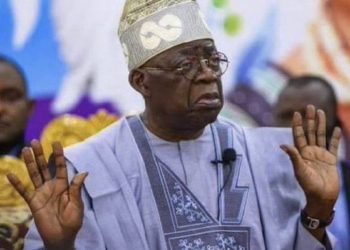Reason has deserted the National Conference Committee on Power Devolution with its hasty rejection of the proposal for state police. Such irrationality is coming at a time when a high level of insecurity, which resulted in Boko Haram’s abduction of 276 Chibok schoolgirls in Borno State, on April 14, is being denounced globally. Terrorism and other social monstrosities now hobbling the country could have been nipped in the bud at their incipient stages with a decentralised policing system. We, therefore, urge the plenary of the conference to reverse the decision of this committee.
The view that Nigeria is not ripe for state police or that governors would abuse it is erroneous. Rather, it is the Federal Government, as recent and past events evince, that has been abusing its control of the police. The argument by Adeniyi Akintola, a Senior Advocate of Nigeria, and Ayo Adebanjo, a delegate, that federalism dictates the adoption of state police is healthy and should be sustained. Ibrahim Coomasie, a former Inspector-General of Police, chaired the committee that shot down the idea.
Nigeria’s under-policing is vividly shown in the 357,000 personnel strength of the Police Force, as of 2013. There is no evidence that the figure has gone up since then. With our 36 states, Abuja and the over 160 million people in the country, any belief that the number of officers we have can effectively maintain law and order is sheer delusion. Urban centres, where police presence is noticeable, do not constitute the entire country, nor are crimes limited to these places. Today, most city criminals seek refuge in rural communities, comforted by the fact that security presence in those areas is scanty or non-existent in some cases.
According to the United Nations, the benchmark is a minimum police strength of 222 per 100,000 people or a ratio of 1 to 450 citizens. The current reality may be within the UN prescription. But the fact that a third of police personnel are attached to individuals and organisations that could afford to pay for such service, at the expense of the security of the greater number of Nigerians, compounds the crisis. It was for this reason that the IG, Mohammed Abubakar, ordered the withdrawal of police escorts from these places in 2012 for an effective national policing. Sadly, the directive was observed only in the breach.
Presently, violent crimes have reached a scale never witnessed before. According to a recent CNN report, Nigeria records 23 per cent of the global kidnapping rate. The heinous crime, Obioma Imoke, wife of the Cross River Governor, once noted, “…has attained the status of a big business.” On a daily basis, citizens are confronted with either the fear of being kidnapped, attacked by armed robbers or raped, in the case of women.
In Plateau, Kaduna, Benue and Nasarawa states, cases of rural communities being attacked by armed invaders, while the residents are asleep, have become a recurring decimal. The latest of these incidents in March in Benue and Nasarawa villages, was masterminded by Fulani herdsmen, who now wield AK 47 rifles and other high-calibre weapons.
So blood-curdling were their atrocities that the Federal Government deployed soldiers in Benue and Nasarawa to restore order. The story would have been different had these states had their own police. That the military are engaged in police duties in 30 states is enough evidence of the ineffectual policing system in the country.
Amid this festering insecurity across the states, it is unreasonable for anybody to describe governors as the chief security officers of their states or hold them accountable on this score, when they control no police. Despite this obvious handicap, each governor still provides enormous working tools for the police command in his state to assist it to excel.
Governor Babatunde Fashola of Lagos State has just donated over 100 Hilux vans, 150 motorcycles and communication gadgets to the police in his domain. His Borno State counterpart, Kashim Shettima, whose domain is under siege from Boko Haram, has made similar contributions. In April, he gave the police Armoured Personnel Carriers and vans. In a recent interview, he bemoaned the state’s spending of over N10 billion so far, in the fight against terrorism, money that could have been used for development.
Inherent in these huge security burdens by states on behalf of the centre is the practicability of state police. Unfortunately, the perennial sacrifices have not delivered the needed result because of structural distortions of the polity. The police need to fan out to rural areas as the ongoing Boko Haram sporadic raids on remote villages in Borno State instruct.
Narrow-minded elements who believe that the Nigeria Police would cease to exist with the birth of state police are reminded of the system in the US where both federal and state police co-exist and complement each other. There are municipal police in the United Kingdom and provincial police in Canada and India. Australia and other federal states also operate a decentalised police system.
A police officer from Sokoto State cannot understand Lagos State’s environment more than an officer who is an indigene, and vice versa. Consequently, this is the time to break this barrier to an effective maintenance of law and order in Nigeria. The country cannot continue to march in the opposite direction to the rest of the world, and expect to make progress.













































